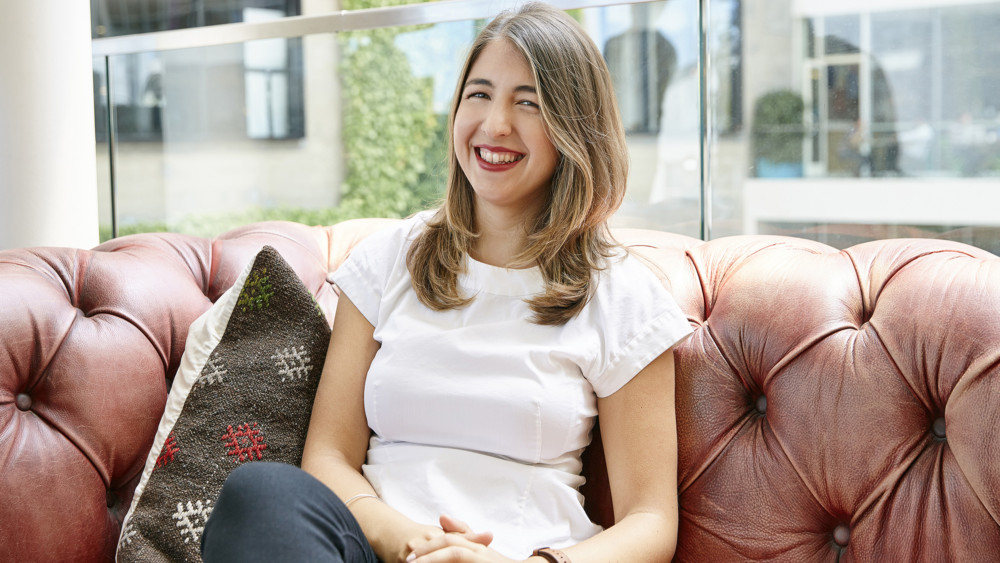By Tracey Lien
Los Angeles Times
WWR Article Summary (tl;dr) Elena Grewal is the interim lead for data science at airbnb. She is a vocal supporter of diversity in tech and often writes blog posts, appears on panels and gives talks at Silicon Valley events about using data to improve diversity.
SAN FRANCISCO
The gig: Technology companies collect data about the pages people look at, the links they click on, and the things they search for. At Airbnb Inc., it’s Elena Grewal’s job to figure out what all that data means. Grewal, 31, is the interim lead for data science at the $25.5 billion San Francisco startup.
Drawn to data: The daughter of an immunologist and a chemical engineer, Grewal always thought she’d follow her parents’ path into science. “I like to joke that I’m still a scientist,” she said. She studied economics and political science at Yale University, during which she spent a summer in India working on a project to bring clean water to children who had acute diarrheal disease.
“I realized a lot of the challenges to public health weren’t necessarily about bringing the best kind of medicine,” Grewal said. Instead, many problems were systemic, and in order to solve them, researchers first needed to identify them. That was when she first started dabbling with data, doing on-the-ground surveys in India to better understand the issues.
Data in education: After Yale, Grewal moved west to be a research assistant at Stanford University’s school of education.
There she dabbled again with data, studying whether there were ways to predict attrition among teachers. She developed a love for data analysis because “it’s a very powerful lens for thinking of how to create change,” she said. Instead of treating symptoms, it allowed her to help identify the root causes of problems, and potentially find long-lasting solutions.
A bit of everything in a doctorate: Grewal remained at Stanford for a doctorate in education and used data at the school of education in her research. While there, she also took classes in computer science and learned to code.
Venturing into tech: Most of Grewal’s work had been academic, so in 2012, with a year of her doctorate left, she wanted to see where else she could apply her skills. A friend in Silicon Valley put her in touch with Airbnb which, at the time, was hiring its first data scientists. Grewal had used Airbnb and was drawn to its mission of connecting people around the world, so she signed on to the team of five data scientists (the company now has more than 50). Her coding skills quickly came in handy, she was able to write programs that combed through and organized data being collected.
Data at Airbnb: Airbnb’s data science team touches every part of the company’s platform, Grewal said. For example, if the data science team sees that lots of people are searching for lodging in a particular city but aren’t booking anything, then perhaps they’re not finding enough homes available for rent, and the company should invest resources into growing that market. “We’re basically interpreters,” Grewal said, “we distill the voice of our customers and use that voice to help inform our products.”
Diversity with data: Grewal’s team has used data science to help diversify the company’s predominantly male workforce. To figure out why so few women were being hired on to the data science division, the team identified the point at which many female applicants dropped out of the recruitment process: the take-home exercise. “We took a close look at this and realized that the people who were grading the exercise had no clear rubric, so we changed this and made it clear what we were looking for, we made the grading consistent, and if a person was successful they were moved to the next round.” The percentage of women on the data science team has since doubled to 30 percent.
Getting in: To get into data science, it helps to have a questioning and logical mind, Grewal said. She also recommends training in statistics, computer programming and developing strong communications skills. But there’s no need for a degree to start analyzing data, and anyone interested in doing it should start doing it on their own, she said. “When I was in my PhD program, I was blogging about my work and doing fun analyses on the side,” Grewal said. “It was a great way for me to learn about different ways to do data analysis, and it helped me get a job because people could see what I’d done.”
Outside the office: Grewal lives in San Francisco’s Mission District. She is a vocal supporter of diversity in tech and often writes blog posts, appears on panels and gives talks at Silicon Valley events about using data to improve diversity.














































































































































































































































































































































































